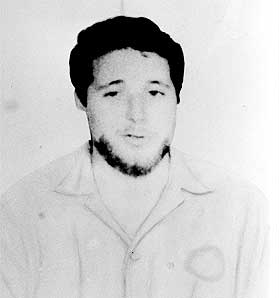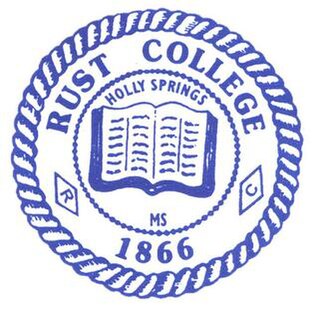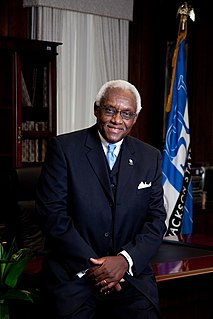Related Research Articles

The 1954–1968 civil rights movement in the United States was preceded by a decades-long campaign by African Americans and their like-minded allies to end legalized racial discrimination, disenfranchisement and racial segregation in the United States. The movement has its origins in the Reconstruction era during the late 19th century, although it made its largest legislative gains in the mid-1960s after years of direct actions and grassroots protests. The social movement's major nonviolent resistance and civil disobedience campaigns eventually secured new protections in federal law for the human rights of all Americans.

Andrew Goodman was an American civil rights worker. He was one of three Civil Rights Movement workers murdered during Freedom Summer in Philadelphia, Mississippi in 1964 by members of the Ku Klux Klan.

McComb is a city in Pike County, Mississippi, United States, approximately 80 miles (130 km) south of Jackson. As of the 2010 census, the city had a total population of 12,790. It is the principal city of the McComb, Mississippi Micropolitan Statistical Area.

The Student Nonviolent Coordinating Committee was the principal channel of student commitment in the United States to the civil rights movement during the 1960s. Emerging in 1960 from the student-led sit-ins at segregated lunch counters in Greensboro, North Carolina, and Nashville, Tennessee, the Committee sought to coordinate and assist direct-action challenges to the civic segregation and political exclusion of African Americans. From 1962, with the support of the Voter Education Project, SNCC committed to the registration and mobilization of black voters in the Deep South. Affiliates such as the Mississippi Freedom Democratic Party and the Lowndes County Freedom Organization in Alabama also worked to increase the pressure on federal and state government to enforce constitutional protections.

Michael Henry "Mickey" Schwerner, was one of three Congress of Racial Equality (CORE) field workers killed in rural Neshoba County, Mississippi, by members of the Ku Klux Klan. Schwerner and two co-workers, James Chaney and Andrew Goodman, were killed in response to their civil rights work, which included promoting voting registration among African Americans, most of whom had been disenfranchised in the state since 1890.
The Mississippi Freedom Democratic Party (MFDP), also referred to as the Freedom Democratic Party, was an American political party created in 1964 as a branch of the populist Freedom Democratic organization in the state of Mississippi during the Civil Rights Movement. It was organized by African Americans and whites from Mississippi to challenge the established power of the Mississippi Democratic Party, which at the time allowed participation only by whites, when African-Americans made up 40% of the state population.
Freedom Summer, also known as the Freedom Summer Project or the Mississippi Summer Project, was a volunteer campaign in the United States launched in June 1964 to attempt to register as many African-American voters as possible in Mississippi. Blacks had been restricted from voting since the turn of the century due to barriers to voter registration and other laws. The project also set up dozens of Freedom Schools, Freedom Houses, and community centers in small towns throughout Mississippi to aid the local Black population.

James Earl Chaney was one of three Congress of Racial Equality (CORE) civil rights workers killed in Philadelphia, Mississippi, by members of the Ku Klux Klan on June 21, 1964. The others were Andrew Goodman and Michael Schwerner from New York City.

The murders of Chaney, Goodman, and Schwerner, also known as the Freedom Summer murders, the Mississippi civil rights workers' murders or the Mississippi Burning murders, refers to three activists who were abducted and murdered in Philadelphia, Mississippi, in June 1964 during the Civil Rights Movement. The victims were James Chaney from Meridian, Mississippi, and Andrew Goodman and Michael Schwerner from New York City. All three were associated with the Council of Federated Organizations (COFO) and its member organization, the Congress of Racial Equality (CORE). They had been working with the Freedom Summer campaign by attempting to register African Americans in Mississippi to vote. Since 1890 and through the turn of the century, southern states had systematically disenfranchised most black voters by discrimination in voter registration and voting.

Rust College is an historically black liberal arts college in Holly Springs, Mississippi. Founded in 1866, it is the second-oldest private college in the state. Affiliated with the United Methodist Church, it is one of ten historically black colleges and universities (HBCUs) founded before 1868 that are still operating.

Aaron Henry was an American civil rights leader, politician, and head of the Mississippi branch of the NAACP. He was one of the founders of the Mississippi Freedom Democratic Party which tried to seat their delegation at the 1964 Democratic National Convention.
The Council of Federated Organizations (COFO) was a coalition of the major Civil Rights Movement organizations operating in Mississippi. COFO was formed in 1961 to coordinate and unite voter registration and other civil rights activities in the state and oversee the distribution of funds from the Voter Education Project. It was instrumental in forming the Mississippi Freedom Democratic Party. COFO member organizations included the National Association for the Advancement of Colored People.
Freedom Schools were temporary, alternative, and free schools for African Americans mostly in the South. They were originally part of a nationwide effort during the Civil Rights Movement to organize African Americans to achieve social, political and economic equality in the United States. The most prominent example of Freedom Schools was in Mississippi during the summer of 1964.

Leslie-Burl McLemore is an American civil rights activist and political leader from Jackson, Mississippi. He served as interim mayor of Jackson following the death of Frank Melton on May 7, 2009 until the inauguration of re-elected mayor Harvey Johnson, Jr. on July 3, 2009.

George Raymond Jr. was an African-American civil rights activist, a member of the Mississippi Freedom Democratic Party, a Freedom Rider, and head of the Congress of Racial Equality in Mississippi in the 1960s. Raymond influenced many of Mississippi's most known activists, such as Anne Moody, C. O. Chinn, and Annie Devine to join the movement and was influential in many of Mississippi's most notable Civil Rights activities such as a Woolworth's lunchcounter sit-in and protests in Jackson, Mississippi, Meredith Mississippi March, and Freedom Summer. Raymond fought for voting rights and equality for African Americans within society amongst other things.
Hollis Watkins is an activist who was part of the Civil Rights Movement activities in the state of Mississippi during the 1960s. He became a member and organizer with the Student Nonviolent Coordinating Committee (SNCC) in 1961, was a county organizer for 1964's "Freedom Summer", and assisted the efforts of the Mississippi Freedom Democratic Party to unseat the regular Mississippi delegation from their chairs at the 1964 Democratic Party national convention in Atlantic City. He founded Southern Echo, a group that gives support to other grass-roots organizations in Mississippi. He also is a founder of the Mississippi Veterans of the Civil Rights Movement.
This is a timeline of the 1947 to 1968 civil rights movement in the United States, a nonviolent mid-20th century freedom movement to gain legal equality and the enforcement of constitutional rights for People of Color. The goals of the movement included securing equal protection under the law, ending legally established racial discrimination, and gaining equal access to public facilities, education reform, fair housing, and the ability to vote.
Ralph Edwin King Jr., better known as Ed King, is a United Methodist minister, civil rights activist, and retired educator. He was a key figure in historic civil rights events taking place in Mississippi, including the Jackson Woolworth’s sit-in of 1963 and the Freedom Summer project in 1964. Rev. King held the position of Chaplain and Dean of Students, 1963–1967, at Tougaloo College in Jackson, Mississippi. At this critical juncture of the civil rights movement, historian John Dittmer described King as “the most visible white activist in the Mississippi movement.”

Dorie Ann Ladner is an American civil rights activist.
The Freedom Vote, also known as the Freedom Ballot, Mississippi Freedom Vote, Freedom Ballot Campaign, or the Mississippi Freedom Ballot, was a 1963 mock election organized in the U.S. state of Mississippi to combat disenfranchisement among African Americans. The effort was organized by the Council of Federated Organizations (COFO), a coalition of Mississippi's four most prominent civil rights organizations, with the Student Nonviolent Coordinating Committee (SNCC) taking a leading role. By the end of the campaign, over 78,000 Mississippians had participated. The Freedom Vote directly led to the creation of the Mississippi Freedom Democratic Party (MFDP).
References
- ↑ "Mississippi Burning 1964 LBJ Tapes". Archived from the original on 2011-09-09. Retrieved 2012-02-24.
- ↑ Digital Archives of Mississippi Sovereignty Commission, August 23, 1962
- ↑ |39|0|15|1|1|1|8227 Letter from Sovereignty Commission [ permanent dead link ]
- ↑ |137|0|25|1|1|1|41367 Mississippi Sovereignty Commission digital Archives, April 16, 1964. [ permanent dead link ]
- ↑ |150|1|23|1|1|1|46099|# Archives of Mississippi Sovereignty Commission, December 15, 1964. [ permanent dead link ]